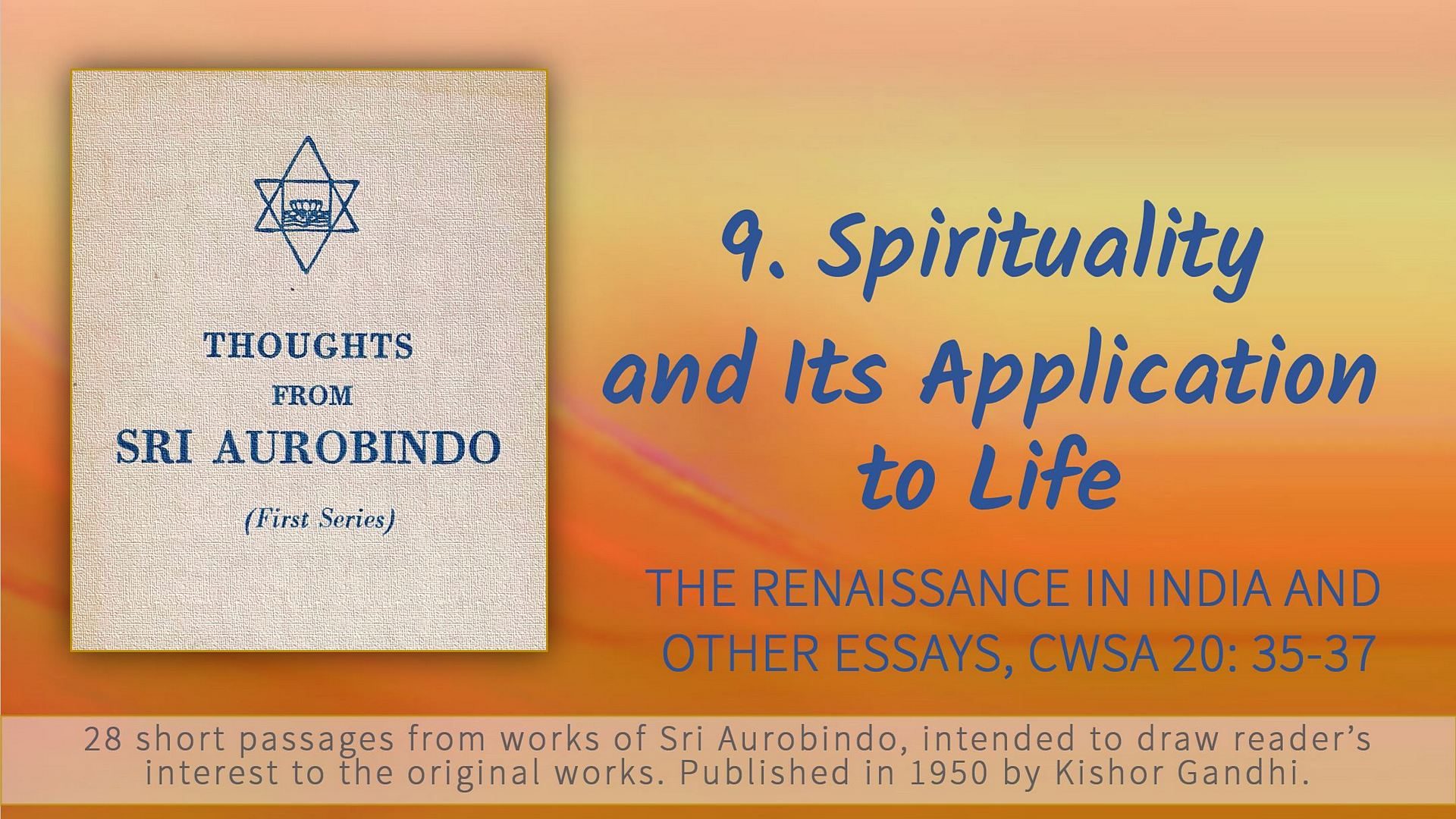
We aim at the health and vigour of the body; but with what object? For its own sake, will be the ordinary reply, because it is worth having; or else that we may have long life and a sound basis for our intellectual, vital, emotional satisfactions. Yes, for its own sake, in a way, but in this sense that the physical too is an expression of the spirit and its perfection is worth having, is part of the dharma of the complete human living; but still more as a basis for all that higher activity which ends in the discovery and expression of the divine self in man. Sarīram khalu dharmasādhanam, runs the old Sanskrit saying, the body too is our means for fulfilling the dharma, the Godward law of our being. The mental, the emotional, the aesthetic parts of us have to be developed, is the ordinary view, so that they may have a greater satisfaction or because that is man’s finer nature, because so he feels himself more alive and fulfilled. This, but not this only; rather because these things too are the expressions of the spirit, things which are seeking in him for their divine values and by their growth, subtlety, flexibility, power, intensity he is able to come nearer to the divine Reality in the world, to lay hold on it variously, to tune eventually his whole life into unity and conformity with it. Morality is in the ordinary view a well-regulated individual and social conduct which keeps society going and leads towards a better, a more rational, temperate, sympathetic, self-restrained dealing with our fellows. But ethics in the spiritual point of view is much more, it is a means of developing in our action and still more essentially in the character of our being the diviner self in us, a step of our growing into the nature of the Godhead.
So with all our aims and activities; spirituality takes them all and gives them a greater, diviner, more intimate sense. Philosophy is, in the western way of dealing with it, a dispassionate enquiry by the light of the reason into the first truths of existence, which we shall get at either by observing the facts science places at our disposal or by a careful dialectical scrutiny of the concepts of the reason or a mixture of the two methods. But from the spiritual view-point truth of existence is to be found by intuition and inner experience and not only by the reason and by scientific observation; the work of philosophy is to arrange the data given by the various means of knowledge, excluding none, and put them into their synthetic relation to the one Truth, the one supreme and universal reality. Eventually, its real value is to prepare a basis for spiritual realisation and the growing of the human being into his divine nature. Science itself becomes only a knowledge of the world which throws an added fight on the spirit of the universe and his way in things. Nor will it confine itself to a physical knowledge and its practical fruits or to the knowledge of fife and man and mind based upon the idea of matter or material energy as our starting-point; a spiritualised culture will make room for new fields of research, for new and old psychical sciences and results which start from spirit as the first truth and from the power of mind and of what is greater than mind to act upon life and matter. The primitive aim of art and poetry is to create images of man and Nature which shall satisfy the sense of beauty and embody artistically the ideas of the intelligence about life and the responses of the imagination to it; but in a spiritual culture they become too in their aim a revelation of greater things concealed in man and Nature and of the deepest spiritual and universal beauty. Politics, society, economy are in the first form of human life simply an arrangement by which men collectively can live, produce, satisfy their desires, enjoy, progress in bodily, vital and mental efficiency; but the spiritual aim makes them much more than this, first, a framework of life within which man can seek for and grow into his real self and divinity, secondly, an increasing embodiment of the divine law of being in life, thirdly, a collective advance towards the light, power, peace, unity, harmony of the diviner nature of humanity which the race is trying to evolve. This and nothing more but nothing less, this in all its potentialities, is what we mean by a spiritual culture and the application of spirituality to life.
— The Renaissance in India
now in: The Renaissance in India and Other Essays CWSA 20: 35-37



About Savitri | B1C1-10 The Response of Earth (p.5)